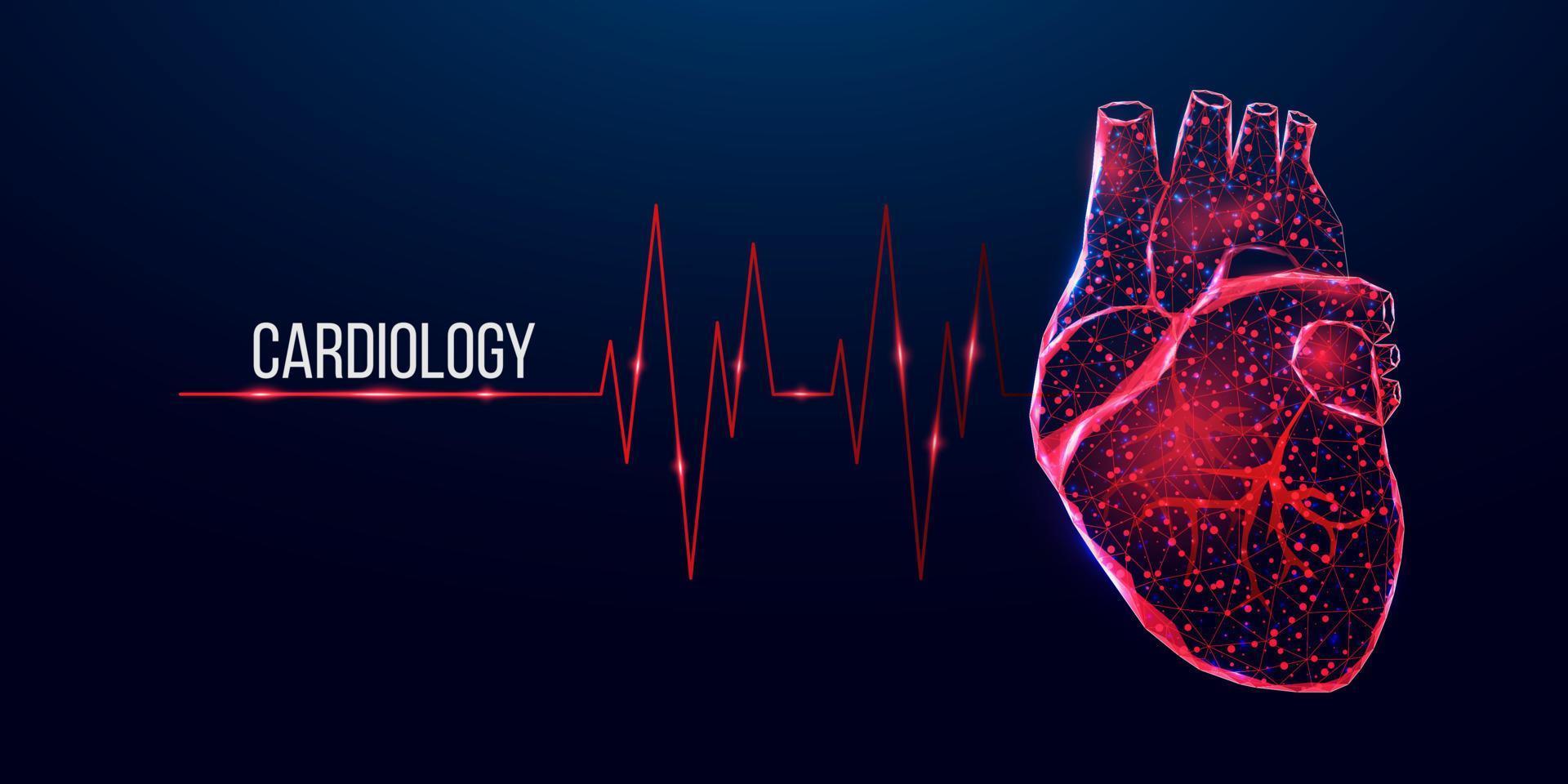The Function of Cardiology in Preventive Health and Wellness Providers
Cardiology is increasingly identified for its essential role in preventative health and wellness services. By emphasizing positive techniques, cardiologists intend to lower the incidence of heart diseases. This approach includes danger assessments, lifestyle adjustments, and normal testings. Through these efforts, individuals are urged to take control of their heart wellness. Nonetheless, the assimilation of modern technology and partnership with other healthcare providers elevates crucial inquiries concerning the future of preventative treatment. What might this evolution involve?

Recognizing Preventative Cardiology
Understanding preventative cardiology involves identifying its essential role in reducing cardiovascular disease risk through proactive measures. This branch of medication stresses the value of way of life adjustments, including workout, anxiety, and diet plan monitoring, to stop heart-related concerns before they arise. It advocates for regular wellness screenings and education to encourage individuals in making enlightened health and wellness choices.Preventative cardiology likewise incorporates the recognition of risk variables such as hypertension, diabetes, and high cholesterol, prompting individuals to take on healthier habits - Cardiologist near me. By concentrating on prevention instead than reaction, this technique not only boosts individual wellness outcomes yet also relieves the overall concern on medical care systems. On top of that, it advertises partnership amongst healthcare carriers, individuals, and areas, promoting an alternative technique to heart health and wellness. Inevitably, recognizing preventative cardiology influences a shift towards a proactive way of thinking, prioritizing long-lasting health and wellness and well-being
Danger Analysis and Monitoring
Danger evaluation is crucial in recognizing cardio risks that can result in serious wellness issues. Efficient administration of these dangers typically entails implementing lifestyle modification techniques, such as boosted diet regimen and increased exercise. By comprehending and attending to these elements, individuals can significantly lower their likelihood of developing heart diseases.
Recognizing Cardiovascular Threats
Although numerous factors add to cardiovascular wellness, determining cardiovascular threats is vital for efficient prevention and management. Cardiovascular risk assessment entails examining numerous components, including family background, age, way of life, and gender habits such as smoking cigarettes and physical inactivity. Additionally, health and wellness conditions like high blood pressure, diabetic issues, and high cholesterol significantly affect an individual's threat profile. Medical care specialists make use of tools such as threat calculators and biomarker tests to quantify these risks and stratify individuals accordingly. Early recognition makes it possible for targeted treatments, directing people toward proper administration techniques. By identifying these risks, cardiologists can work together with clients to create individualized strategies that emphasize tracking and positive treatment, ultimately minimizing the likelihood of adverse cardio occasions.
Lifestyle Adjustment Strategies
Reliable lifestyle adjustment approaches play a vital role in handling cardio wellness and mitigating involved threats. These approaches encompass dietary modifications, boosted physical task, and smoking cessation. A heart-healthy diet rich in fruits, vegetables, whole grains, and lean healthy proteins can substantially lower cholesterol degrees and blood pressure. Regular physical activity, such as cardiovascular exercises, improves and strengthens the heart circulation. Additionally, quitting smoking decreases the risk of heart problem and enhances overall health. Medical care specialists usually use threat analysis tools to tailor these modifications to individual demands properly. By incorporating way of life become regular treatment, cardiologists can equip patients to take charge of their heart wellness, eventually resulting in improved end results and minimized health care costs.
Way Of Living Adjustments for Heart Health
To maintain excellent heart health and wellness, individuals should take on a range of lifestyle alterations that substantially lower the chance of heart diseases. A balanced diet regimen abundant in fruits, vegetables, whole grains, and lean proteins is vital. Lowering hydrogenated fats, trans fats, and sodium consumption can considerably lower cholesterol degrees and blood stress. Routine exercise, such as vigorous walking or biking for at the very least 150 minutes each week, additionally plays a substantial function in boosting and enhancing the heart circulation.Additionally, taking care of stress with techniques like mindfulness and reflection can have a positive effect on heart wellness. Avoiding cigarette products and restricting alcohol intake even more add to a healthier cardio system. Preserving a healthy and balanced weight is crucial, as weight problems is a significant danger factor for heart problem. By integrating these way of life changes, people can promote not only their heart health and wellness however likewise their total well-being, resulting in a much more dynamic and active life.
The Relevance of Normal Screenings
In addition to way of living alterations, regular screenings play a crucial role in preserving heart health and protecting against cardiovascular conditions. These evaluations are substantial for determining risk factors such as hypertension, high cholesterol, and diabetic issues, which can bring about major problems if left untreated. Cardiologists suggest regular assessments to monitor heart feature and detect irregularities early, permitting prompt intervention.Screenings, which might include blood electrocardiograms, examinations, and echocardiograms, provide essential information for individualized treatment plans. This proactive strategy encourages people to make informed choices concerning their health and wellness, boosting total health. In addition, normal examinations foster a stronger doctor-patient relationship, urging open discussion about heart health and wellness worries.
Integrating Technology in Preventative Care
Welcoming technology has reinvented preventative treatment in cardiology, supplying cutting-edge tools that boost client surveillance and interaction. Wearable gadgets, such as smartwatches and health and fitness trackers, make it possible for people to check their heart price, task levels, and general health and wellness metrics in real-time. These tools not only supply immediate comments however additionally help with information showing medical care companies, enabling prompt treatments when necessary.Additionally, telemedicine has emerged as a popular attribute in cardiology, allowing remote consultations and follow-ups. This ease of access assures that people can get treatment without Discover More Here the obstacles of traveling and time restrictions. Mobile wellness applications additional support preventative measures by supplying customized insights and suggestions for medicine adherence, way of life modifications, and arranged screenings.
Client Education and Empowerment
Empowerment with education is important in the domain of preventative cardiology, as notified clients are more probable to participate in proactive health and wellness behaviors. By comprehending their cardio wellness, people can make informed choices regarding way of living adjustments and adherence to treatment plans. Educational initiatives, consisting of workshops, informational handouts, and on-line sources, serve to enhance individual knowledge concerning danger factors such as high blood pressure, cholesterol degrees, and the value of normal exercise.Moreover, equipping clients cultivates a joint approach to health and wellness monitoring. When individuals are aware of their problems and the implications of their options, they are extra likely to take part in discussions with healthcare companies, leading to customized treatment strategies. This partnership not just promotes responsibility yet also improves inspiration for keeping a heart-healthy way of living (Cardiology Jupiter). Inevitably, patient education and learning is a cornerstone of preventative cardiology, equipping individuals with the devices needed to take cost of their cardiovascular health and well-being
Collaborating With Other Medical Care Professionals
Efficient individual education and learning lays the foundation for collaborative initiatives among healthcare experts in the field of preventative cardiology. Cardiologists, medical care doctors, nutritional experts, and mental health specialists have to operate in harmony to enhance patient outcomes. By sharing approaches and understandings, these specialists can create detailed care strategies that deal with both physical and emotional elements of heart health.Regular interdisciplinary meetings foster communication, making certain that all staff member are informed about patient progress and challenges. This collaboration helps with prompt treatments and changes to treatment strategies, boosting the effectiveness of preventative measures.Furthermore, integrating great site innovation, such as common electronic health records, improves data ease of access and simplifies control initiatives. This alternative approach not only enhances client adherence to way of living changes yet additionally encourages people to organize their cardiovascular health. Inevitably, cooperation among health care professionals is crucial in advertising an aggressive strategy to heart problem avoidance.
Often Asked Inquiries
What Is the Distinction Between Cardiology and General Healthcare?
Cardiology focuses on identifying and treating heart-related conditions, while general healthcare includes a broader series of medical solutions dealing with numerous health concerns - Cardiology. Each plays an essential duty in keeping overall health and health
Exactly how Commonly Should I See a Cardiologist for Preventive Care?
The frequency of cardiologist visits for preventative care varies based upon private danger elements. Usually, yearly appointments are advised for those with status quo, while others might call for much less frequent examinations based on general heart health.
Can Stress And Anxiety Effect My Heart Health And Wellness Substantially?
Tension can substantially affect heart health and wellness by adding to high blood pressure, swelling, and unhealthy way of living selections. People experiencing chronic stress find more info might go to boosted risk for cardio problems, demanding efficient stress management techniques for much better heart health.
Exist Details Heart Conditions I Should Recognize?
Individuals must be aware of problems like high blood pressure, coronary artery illness, heart failure, arrhythmias, and valvular cardiovascular disease. Acknowledging these problems early can lead to much better administration and improved general heart wellness end results.

What Are the Prices Connected With Preventative Cardiology Providers?
The expenses connected with preventative cardiology services can vary considerably. Variables such as area, kind of solution, and insurance coverage impact overall expenditures, making it necessary for individuals to seek detailed information specific to their situations. With these efforts, people are encouraged to take control of their heart health. It supports for regular health testings and education and learning to encourage people in making enlightened health choices.Preventative cardiology additionally incorporates the identification of threat elements such as hypertension, diabetes, and high cholesterol, prompting people to embrace much healthier routines. In addition, it advertises collaboration amongst health care areas, patients, and service providers, cultivating an all natural approach to heart health and wellness. Routine physical activity, such as quick walking or cycling for at least 150 mins per week, likewise plays a substantial function in enhancing and enhancing the heart circulation.Additionally, managing stress and anxiety with strategies like mindfulness and meditation can have a favorable influence on heart health. Cardiology specializes in detecting and dealing with heart-related problems, while basic health care includes a more comprehensive range of clinical solutions addressing different health and wellness issues.